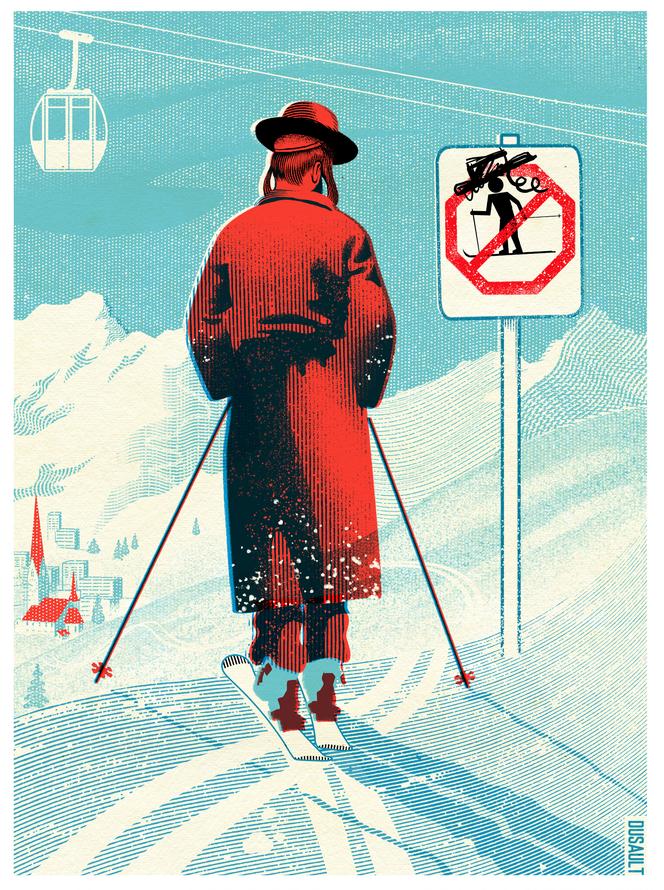


Weeks had passed, but his indignation had yet to subside. Baruch, 19, remained as stunned as ever while showing on his phone the photo of a sign he discovered in late February on the window of a winter sports equipment rental store at the top of the slopes in Davos, Switzerland. It said in Hebrew: "We are no longer renting sleds and skis to our Jewish friends." For this resident of a Haredi (ultra-Orthodox) neighborhood in Stamford Hill, north London, "it's a sign that a red line has been crossed." He compared it to "the atmosphere in Germany back in 1933." "And we know what happened next," he added.
For the past few months, the young man had been attending a Talmudic school in Davos. At the entrance to this former hotel-turned-reception center for young religious Jews, dozens of black hats and frock coats hung from the vestibule's coat hooks. Some 60 teenagers and young men, sporting black pants and white shirts, kippahs and sidelocks, came from all over Europe and sometimes a little further afield to study Talmud in one of the resort's two yeshivas (Talmudic schools). Moshe lives in Antwerp, Belgium; Josef in Bnei Brak, near Tel Aviv, Israel; and David in Amsterdam, the Netherlands. All said the same thing: "Since October 7, 2023 [the date of the Hamas attack on Israeli soil], the mood has changed. People's stares have become heavy, insistent, as if they want to fill us with guilt."
No more sleds for the Jewish visitors. What got into Ruedi Pfiffner, the quiet manager of this small, high-altitude local business? The man explained himself briefly in the German-language press before vanishing as the controversy grew to such an extent that it made headlines in the United States and Israel. "They go up with sneakers and are not equipped for winter sports. They sometimes leave their equipment on the slopes," he explained. "We no longer want to run the risk of a customer causing a serious accident and holding us responsible." His refusal to rent out his equipment supposedly had nothing to do with personal considerations but rather with safety aspects.
"The problem lies in the 'they,' which is in itself anti-Semitic, through its unacceptable generalization and the discrimination it implies," countered Jonathan Kreutner, general secretary of the Swiss Federation of Jewish Communities (SIG), who is considering legal action. "Not all Jews leave sleds in the snow; not all Jews behave badly toward shopkeepers." The Graubünden cantonal police have launched an investigation to determine to what extent the message was a faux-pax or intentional. It was quickly removed and replaced by another, in German, which no longer mentions Jewish customers but specifies that appropriate winter clothing and footwear are required to rent sports equipment in winter.
You have 73.39% of this article left to read. The rest is for subscribers only.
